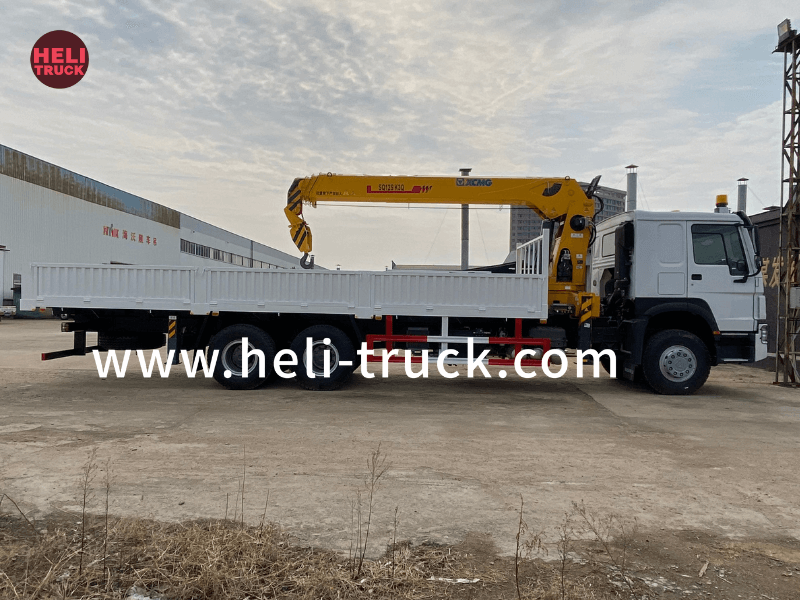The Role and Impact of Used Garbage Compactor Trucks in Waste Management

Introduction
Garbage compactor trucks play a crucial role in waste management systems worldwide. These specialized vehicles are designed to collect and compact solid waste efficiently, reducing its volume and making transportation and disposal more cost-effective. In this article, we will explore the significance of used garbage compactor trucks in waste management processes, their benefits, challenges, and the impact they have on environmental sustainability.
Evolution of Garbage Compactor Trucks
The concept of garbage compaction dates back to the early 20th century when urban centers faced increasing challenges in managing growing volumes of solid waste. The introduction of garbage compactor trucks revolutionized waste collection and disposal practices by enabling more efficient collection and transportation of solid waste. These vehicles are equipped with hydraulic compactors that compress the collected waste, allowing for greater load capacities and reducing the number of trips required for disposal.
Types of Garbage Compactor Trucks
There are several types of garbage compactor trucks available in the market, each designed for specific waste management needs. The most common types include rear-loading compactors, front-loading compactors, and side-loading compactors. Rear-loading compactors are widely used for residential waste collection, while front-loading and side-loading compactors are more commonly used for commercial and industrial waste collection.
Benefits of Used Garbage Compactor Trucks
The use of used garbage compactor trucks offers various benefits to waste management systems and the environment. One of the primary advantages is the reduction in transportation costs due to the increased efficiency in waste compaction. By compacting solid waste, these vehicles can carry larger loads, reducing the number of trips required for waste collection and disposal.
Additionally, used garbage compactor trucks help minimize the environmental impact of waste management operations. By compacting waste, these vehicles reduce the volume of solid waste that ends up in landfills, extending the lifespan of disposal sites and reducing greenhouse gas emissions associated with waste decomposition. Moreover, Fuel tank truck leak detection and compaction of waste in these trucks help prevent littering and improve overall sanitation in communities.
Challenges in Using Used Garbage Compactor Trucks
While used garbage compactor trucks offer numerous benefits, there are also challenges associated with their use. One of the primary challenges is the maintenance and repair of aging vehicles. Used compactor trucks may require more frequent maintenance and replacement of parts, increasing operational costs for waste management agencies. Ensuring the reliability and safety of older vehicles is essential to avoid breakdowns and service disruptions.
Another challenge is the disposal of compacted waste from these trucks. Proper disposal of compacted waste is crucial to prevent environmental contamination and maintain the integrity of disposal sites. Waste management agencies must adhere to strict regulations and guidelines to ensure that compacted waste is disposed of responsibly and in compliance with environmental standards.
Impact on Environmental Sustainability
The use of used garbage compactor trucks has a significant impact on environmental sustainability. By reducing the volume of solid waste and increasing the efficiency of waste collection and disposal, these vehicles help conserve natural resources, minimize pollution, and reduce energy consumption. The compacted waste requires less space in landfills, helping to mitigate the environmental impact of waste disposal on ecosystems and communities.

Furthermore, the containment of waste in compactor trucks reduces the risk of littering and illegal dumping, preserving the aesthetic value of urban areas and protecting wildlife habitats. The environmental benefits of using garbage compactor trucks contribute to the overall sustainability of waste management practices and support efforts to achieve a more circular economy.
Conclusion
Used garbage compactor trucks play a vital role in modern waste management systems by improving the efficiency, cost-effectiveness, and environmental sustainability of waste collection and disposal processes. These specialized vehicles help reduce the volume of solid waste, minimize transportation costs, and enhance overall sanitation in communities. While there are challenges associated with using older compactor trucks, their benefits in enhancing waste management practices and promoting environmental sustainability are undeniable. By recognizing the significance of used garbage compactor trucks and investing in their maintenance and operation, waste management agencies can continue to improve waste management practices and contribute to a cleaner, healthier environment for future generations.
